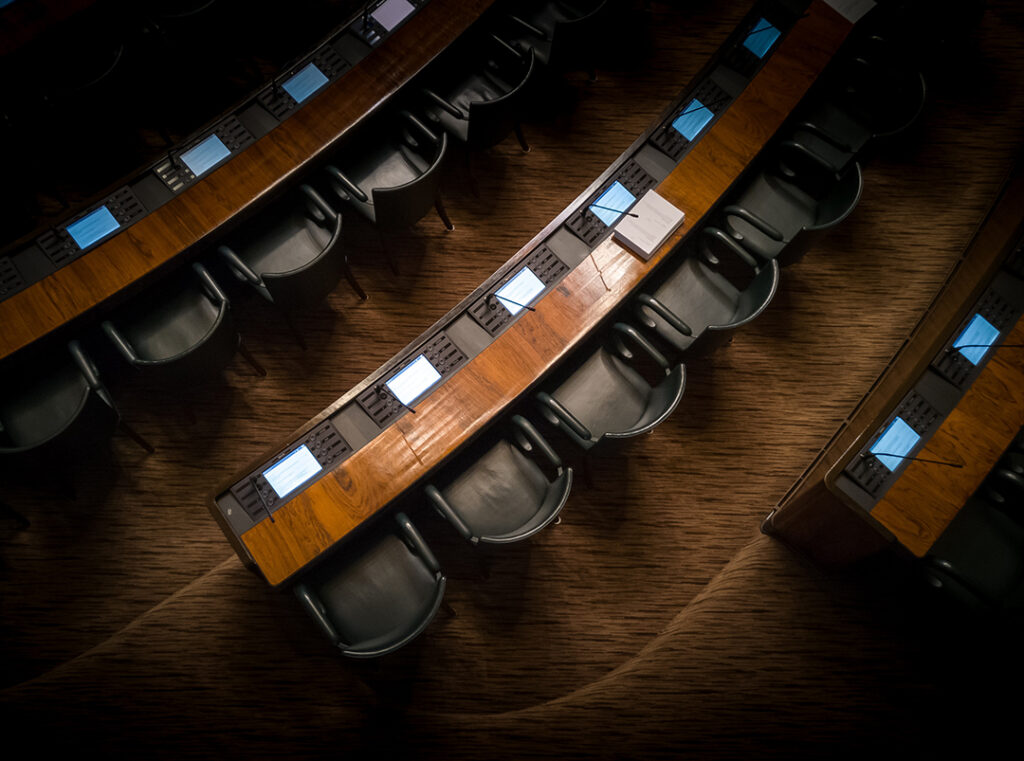Humza Yousaf breaks barriers as Scotland’s Muslim First Minister
Humza Yousaf breaks barriers as Scotland’s Muslim First Minister
Humza Yousaf becomes Scotland’s first ethnic minority and Muslim First Minister, reflecting a new era of diversity in European politics.
Humza Yousaf, a member of the Scottish National Party (SNP), has made history as Scotland’s new First Minister. He has become the first person from an ethnic minority background and the first Muslim to hold the position.[1] His rise to the position of First Minister of Scotland also makes him the first Muslim leader of a western European democracy.[2] Yousaf was confirmed as Scotland’s new First Minister after a vote in the Scottish Parliament with a guaranteed majority.[3] Yousaf succeeds Nicola Sturgeon, who tendered her resignation after more than eight years in the role.[4]
Yousaf’s background and upbringing
Born in Glasgow in 1985, Humza Yousaf is the son of Pakistani immigrants. His father, a successful accountant, provided Yousaf with a privileged upbringing, including education at one of Glasgow’s most prestigious private schools, Hutchesons’ Grammar.[5] Despite his relatively comfortable upbringing, Yousaf has spoken openly about the Islamophobic insults he endured from classmates after the 9/11 attacks in the United States.[6]
The appointment of Yousaf as First Minister arguably shows the progress Scotland has made in terms of diversity and inclusivity. In his acceptance speech, Yousaf emphasised the significance of this historic moment, stating, “we should all take pride in the fact that today we have sent a clear message: that your colour of skin or indeed your faith is not a barrier to leading the country that we all call home.”[7]
Mixed reactions to Yousaf’s appointment
Many celebrated Yousaf’s appointment as an important step towards greater diversity in politics. Prime Minister Rishi Sunak, who is also of South Asian descent, congratulated Yousaf and expressed his desire to continue “working constructively with the Scottish government”[8] to address issues like inflation, economic growth, and reducing waiting times in public services. Scottish Labour leader Anas Sarwar, who is also of Pakistani heritage, praised Yousaf’s appointment, acknowledging that their respective grandparents “could never have imagined”[9] that their grandchildren would reach such positions of power when they arrived in the country. Sarwar also vowed to stand against hatred and bigotry alongside Yousaf, as both leaders have faced racism and personal abuse throughout their political careers.[10] Muslim leaders recognised these sentiments, such as Shaykh (Dr) Haitham Al-Haddad, a jurist who serves as a judge for the Islamic Council of Europe, who said, “this is a remarkable milestone not only for Muslims in the UK but also for the entire Western European region. It sends a strong message of inclusivity and progress, and it shows that the barriers of ethnicity and faith are being dismantled in our society.”[11]
However, not all reactions have been positive. Critics argue that Yousaf’s appointment represents a further division in Scottish politics, with some fearing that his leadership could exacerbate tensions between the pro-independence SNP and the UK government. Douglas Ross, leader of the Scottish Conservatives, accused Yousaf of renewing Nicola Sturgeon’s “constitutional conflict with the UK government”[12] by advocating for another independence referendum on his first day in office.
Future inspiration and tensions
Despite the mixed reactions, Yousaf’s appointment as First Minister sends a powerful message about the changing face of UK politics. As Sunder Katwala, Director of the think tank British Future, said, “Humza Yousaf becoming First Minister of Scotland is an important moment for diversity in British politics. It shows that people from all backgrounds can aspire to and achieve the highest levels of political leadership.”[13] His election signifies a shift towards greater ethnic and faith diversity in leadership roles, which is particularly notable given the recent findings that Christians are now a minority in England and Wales.[14]
This progress can be seen in other political leaders like Rishi Sunak, Sadiq Khan, the Mayor of London, who also has Pakistani Muslim heritage, and Anas Sarwar, all breaking barriers in their respective roles.[15] But even if Yousaf’s historic appointment serves as an inspiration for diverse political representation, his real impact is yet to unfold. Doubts remain as to whether he will be able to navigate the genuine tensions currently shaping the political landscape of the UK.
Sources
[1] Humza Yousaf confirmed as Scotland’s new first minister – BBC News
[2] Humza Yousaf: Scotland gets a Muslim leader in a moment of extraordinary change for British politics
[3] Humza Yousaf confirmed as Scotland’s new first minister – BBC News
[4] Muslim leader for Scotland a sign of UK political diversity | AP News
[5] Humza Yousaf: Scotland gets a Muslim leader in a moment of extraordinary change for British politics
[6] How should Muslims react to the election of Humza Yousaf as Scotland’s First Minister? – Islam21c
[7] Humza Yousaf: Scotland gets a Muslim leader in a moment of extraordinary change for British politics
[8] Humza Yousaf confirmed as Scotland’s new first minister – BBC News
[9] Humza Yousaf confirmed as Scotland’s new first minister – BBC News
[10] Humza Yousaf confirmed as Scotland’s new first minister – BBC News
[11] How should Muslims react to the election of Humza Yousaf as Scotland’s First Minister? – Islam21c
[12] Humza Yousaf confirmed as Scotland’s new first minister – BBC News
[13] Muslim leader for Scotland a sign of U.K. political diversity – Los Angeles Times
[14] Scottish Muslim leader’s rise underlines ‘new norm’ in UK
[15] Muslim leader for Scotland a sign of U.K. political diversity – Los Angeles Times






